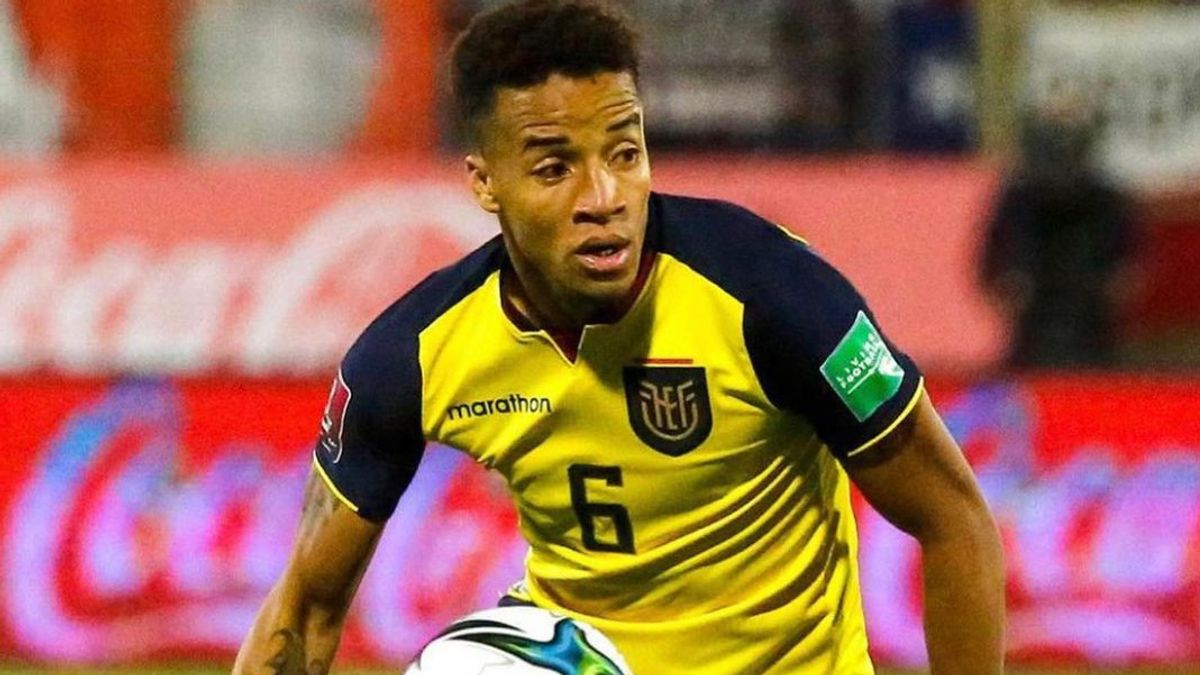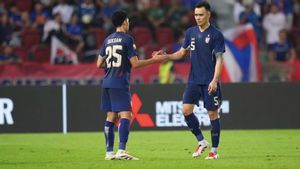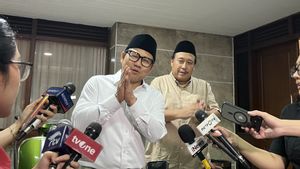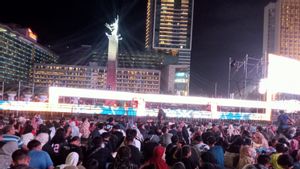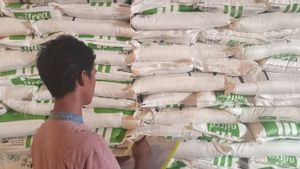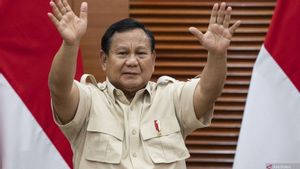JAKARTA - After Sportsmail discovered new evidence from the confession of players who used fake birth certificates in an official investigation that was covered up by Ecuador's Football Federation [FEF], Ecuador is now at risk of being crossed out of the World Cup.
Shocking information in FIFA's investigation into the problem of kolo Castillo comes just days before their Appeal Commission is scheduled to decide on Thursday the day after tomorrow.
This may change who Qatar will face in the opening match of the World Cup and who will have the chance to fight England in the round of 16.
Castillo, the right-back who made eight appearances in the World Cup qualifiers, is in the midst of an interesting case involving allegations of false identity and covered up by the Ecuadorn Federation. It centers on whether Castillo was born in Ecuador or crosses the border in Colombia.
Sportsmail on Monday released audio interviews between Castillo to investigators four years ago. In this conversation, which will surprise South American football and cause many problems for FIFA, he stated that his year of birth was 1995. Whereas his birth certificate was listed in 1998 in Ecuador.
Castillo also said his full name was Bayron Javier Castillo Segura, according to information on his Colombian birth certificate, not the name though David Castillo Segura appeared in Ecuador's certificate.
He then explained in detail that he left Tumaco, Colombia, to San Lorenzo, Ecuador, to pursue a football career while identifying an entrepreneur from Ecuador who gave him a new name.
DailyMail de Inglaterra: Ecuador podría ser expulsado del próximo mundial. Reporte incluye audio donde Byron Castillo reconocé tener cédula falsa y haber nacido en Colombia. El medio inglés habla de pasaportes falsos, multiples identidades y encubrimientopic.twitter.com/w5qM07EXYA
— Chilean Premier League (@AbranCancha8) September 12, 2022
The letter added that they had audio evidence from the player's confession and that Castillo graduated from Middle School Tumaco in 1995 and Colombian nationals.
However, FEF declared Castillo a citizen of Ecuador in 2019.
Since receiving official protests from FA Chile in April that Castillo is ineligible to represent Ecuador as he is a Colombian citizen entering Ecuador illegally, FIFA has investigated the matter.
Eliminating them from the tournament in the final stages will tarnish the face of FIFA, which in June dismissed Chile's complaint by finding that Castillo was born in Ecuador.
Qatar is scheduled to play Ecuador in the opening match of the World Cup on November 20. The June trial did not include this material.
Ecuador face being kicked out of the World Cup due to defender Byron Castillo being Colombian! 🇪🇨The Ecuadorian FA are believed to have tried to cover up the player's confession 😲#Ecuador #Chile #FIFAWorldCup pic.twitter.com/5YLcfrOqxB
— DR Sports (@drsportsmedia) September 12, 2022
Castillo was accused of Chile of being born in 1995 in Tumaco, Colombia, even though his passport showed he was actually born in General Villamil, Ecuador, in 1998.
Two birth documents that registered players with slightly different names, one from Colombia (Bayron Javier Castillo Segura) and others from Ecuador, were also disclosed by Sportsmail (Byron David Castillo Segura.) Castillo's birthday was written July 25, 1995 in Colombia's certificate and November 10, 1998 on Ecuador's version.
Questions about Castillo's identity first emerged when the transfer involving two Ecuadorn clubs; Norte Agencies and Club Emelecs in 2015 failed due to irregularities in the documents.
After Norte was found guilty of supporting and profiting from the player's fake documents in 2018, FEF suspended the team and formed an independent Investigative Commission to investigate the issue of fake passports used by football clubs across the country.
Castillo's important interview, where he appears to admit that his official documents were fake, was conducted in Ecuador in December 2018.
Castillo was questioned during the interview, "When exactly were you born?" where did he answer, "In 95." Investigators then asked, "And what year was listed in the passport?" the answer was, "98."
The next question is, "What's your name?". "Bayron Javier Castillo Segura", he replied.
Carta de Byron Castillo y su abogado Hernán Ulloa a @FEFecuador. pic.twitter.com/SvaiL7jNk9
— Reinaldo Romero (@reijournalist) February 14, 2017
Castillo also identified Marco Zambrano, the owner of Norteias, as the person who gave him the new documents and false identities. He was asked, "Marco Zambrano did everything for you from the start?" Castillo replied, "Of course, he told me he would help me, this and that."
The audio footage, published by Sportsmail Monday, will be submitted to the FIFA Appeals Commission to move quickly and raise concerns about Ecuador's FEF, which appears to have ignored the results of their own investigation.
Castillo has received a junior international cap from Ecuador when an investigation was carried out in 2018. However, he did not play in senior matches until 2021, when he earned the first of the 10 total caps he bagged.
Castillo has been invited to testify via video link before the FIFA Appeals Commission to answer their questions, although he never talked about his citizenship publicly.
The English, Chinese, Japanese, Arabic, and French versions are automatically generated by the AI. So there may still be inaccuracies in translating, please always see Indonesian as our main language. (system supported by DigitalSiber.id)
